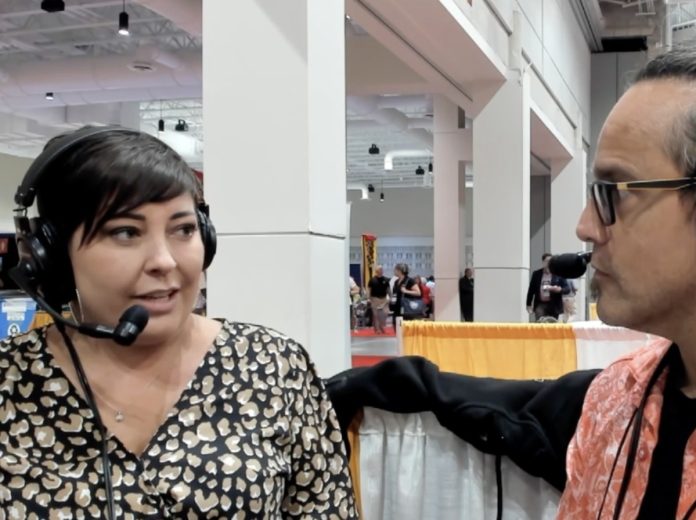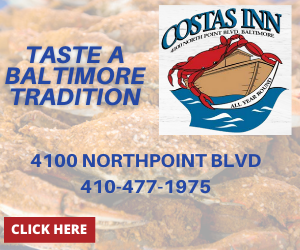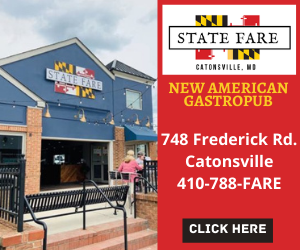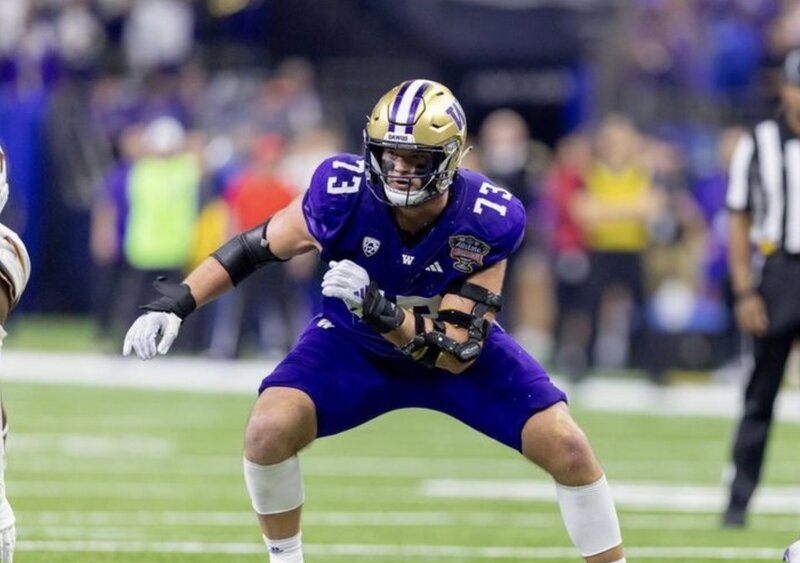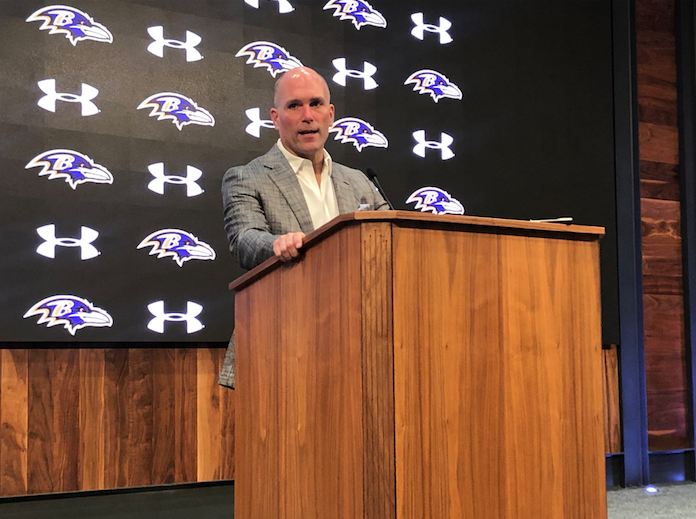If you or anyone in your world has fallen victim to opioid addiction, you’ll have even more appreciation for the work ahead for the new Madame Secretary Emily Keller, who we met as the Mayor of Hagerstown. Learn about the journey of the newly appointed Special Secretary of Opioid Response and her ride to the Volvo plant with President Joe Biden.
SUMMARY KEYWORDS
hagerstown, opioid, people, mayor, talked, friend, mako, washington county, baltimore, volvo, president, good, years, heroin, number, problem, annapolis, thought, madam secretary, access
SPEAKERS
Nestor Aparicio, Emily Keller
Nestor Aparicio 00:00
What about w n s t Towson Baltimore and Baltimore positive someplace I’ll find my lottery tickets runner. It’s the 50th anniversary of the Maryland lottery. We’re down here in Mako celebrating 25 years of this mess. It is all brought to you by our friends at winter nation 866 90 nation I am a Windows put in a year ago like cat loves them my wife loves them. thing I love is we keep the windows open even when it’s like 80 degrees out of kind of the breeze blowing through good Windows important and our friends are asking global some point I’m going to christen this. This crab mallet with the beer opener on the other side, the American dream and Raskind global get down to costus We’re gonna be Pappus on the 29th account executive and run account executive, sir Pittman. We’re also going to be on the 15th of September at fade Lee’s in Lexington market eating crab cakes and talking to compensate President Dr. Jenkins as well as compensate new Head Basketball Coach Larry Stewart. She is the former mayor of Hagerstown, you know in the beginning with all these these titles. I’m not good at titles. She’s Emily to me. She is the mayor of Hagerstown at one point. Now she’s the Madam Secretary, I don’t have your card. Why don’t you have a badge?
Emily Keller 01:09
Special Secretary of opioid response is that a
Nestor Aparicio 01:13
made up that that? Was there one of those before that or no, this is this is an implementation of a problem that you’ve told me your story and friends in your life experience and insurance and agar Stan, but people don’t know who you are. But this title say that again, special,
Emily Keller 01:29
special Secretary of opioid response. Okay, what does that mean? So I oversee the opioid operational command center. As you can see, they gave me really easy titles to say multiple times. It’s a lot. It’s a lot. It’s a mouthful. So the opioid Operational Command Center, also known as the OCC, which is much easier to say, we actually coordinate the street state’s plan for overdose response. So we work with all of the different departments and we work with all 24 jurisdictions.
Nestor Aparicio 02:00
Your background, I, you’ve told your life story, you run for office, you’re now in this appointed position with Governor Moore. Your story was very compelling to me. I found her on the internet, by the way, she was mouthy with somebody on Twitter about something and I’m like, I would never and I said she care and I liked that and, and I said I want to have her on the show. And I just thought I just Wildcat at you and reaching I’m like, Hey, I see you’re kind of like my sort of pissed off on the internet. And you’re like an elected now and I’ve really never been a understand at that point. I was coming up for crabcake and I reached out to you we never had to crab cake. We still have never had a doughnut down the street at your place. Trump he’s but your story the first time I had you on man. It’s I’m from Dundalk. I’m hardscrabble. And I’ve been up to Hagerstown or some hardscrabble. Tell your story about your friendship, and for you to be opioid. If your mother would have known you were the opioid czar. 10 years ago, you’re least likely to do this job right now. Right? Am I right? Am I wrong?
Emily Keller 03:02
No, absolutely. I never had any intention of running for office. I never woke up in the morning and said, I want to be a politician one day,
Nestor Aparicio 03:09
you ever lived your life thinking one day I might run for office? Like never,
Emily Keller 03:13
right? Never. But my best friend did struggle with a substance use disorder, heroin became the love of her life. And I’ve watched her just not access the resources that she needed. And especially in Washington County, we were leading the way and all the numbers, you don’t want to be leading the way behind Baltimore City and Baltimore County. And I looked around at our elected leaders, and I didn’t hear anyone talking about this issue. Meanwhile, like my entire generation was, was dying from from opioids and, and so I look
Nestor Aparicio 03:42
at your high school class and say, What happened to Johnny right or whatever, right? Yes. And you’re always 30 At the time, right? Like, literally, yeah,
Emily Keller 03:49
I was 30. And, you know, someone said, You should run for office. And my initial response was no, like, no way. But the more I watched her struggle, and the more I was, I just got frustrated. I said, You know what, I can sit on the sidelines and I can complain, or I can run and try to do something about it. So I just talked about overdose issues, and I won the primary and three months later, she lost her life to an overdose. And to me when you couldn’t help, I couldn’t help her.
Nestor Aparicio 04:18
What was the what what was the lifeline then? So you’re her friend. You know, she’s got a problem. This can be sister loved one, brother, son. Next Door, neighbors say I gotta get this person somehow. We’ve We’ve all known someone I mean, you know, both my parents had alcohol problems. My mother, specifically my paternal maternal mother. I couldn’t help right. I mean, and at that end, there was a very frustrating part of my childhood, but I wouldn’t have even known other than sitting just with her how serious it would be. Please don’t disrupt my show. We’re a serious issue here. So I get distracted. Making a call At that time and saying, I want help, what did you do? What What was the help, then? And what’s the help now that you’ve been hired to do this.
Emily Keller 05:09
So this is back in, you know, 2014 1516. And I didn’t really understand, you know, I was learning with her. I didn’t really understand substance use issues that went, especially when it came to heroin. And I didn’t know like, to me the first time I found out that she was using, I literally lied to her to get her into my car. And I drove her to the hospital, like to the emergency room. And I was like, we’re gonna go in here, because you first write fiction. And that’s not the way this works. All right, I know that now, most, most everyone knows that now know anything else to do? Yeah, I didn’t, I didn’t know what to do. And then I learned with her and I started, like, just reading all the books and reading all the articles and learning about substance use disorder. And but anytime that she was ready for help, you know, when someone finally has he is brave enough to say, yes, like, this is my time, you have a very short window of time before they start feeling sick again. And there was never open beds, there was never open beds. And I felt like I would just call you know, I would get online and search for treatment facilities. And there was an open bed will be four weeks out five weeks out. Now we’re in a much better place now, thankfully. But back then it was so frustrating. And by the time, you know, the last time that I saw her before she died, she actually was ready to get help. And there was there wasn’t any place a senator that was available in the next week or two. And she lost her life two weeks later.
Nestor Aparicio 06:35
And then you go on this pathway, right? I mean, so you become mayor. Yeah, obviously, grief is involved in this sort of drive involved in this. I last I heard you’re the mayor. And then we were gonna have a doughnut. And then your ride around with Joe Biden. And then Westmore is the point. And like, I haven’t talked to you since then. So I’m literally just trying to figure out catch me up here as Mayor of hate your standards. Now the opioid czar for lack of better, this appointed position in West and Joe Biden. How did the Joe Biden thing start with that?
Emily Keller 07:11
It’s like a really cool story, actually. So coming to Hagerstown, he was going to Volvo for Manufacturing Day, and they asked me to meet him on the tarmac. So I’m like, getting to meet the president. You know, it was the most surreal thing the plane flies in and comes down. And a couple of days before that they had asked me to speak at Volvo and Alec pressures, one because not only do I have to meet the President, I have to speak. And then they said I could ride in the motorcade. So I had like a car behind me.
Nestor Aparicio 07:39
Give me the importance of
Emily Keller 07:39
Volvo in your it’s a huge employer, huge employer in Hagerstown and in Washington County, one of our largest employers.
Nestor Aparicio 07:48
Okay. I mean, I don’t I didn’t know about that. I knew about it, I guess when Joe Biden showed up, but I didn’t know that. Baltimore God and no, you know, I think GM in East Baltimore County when I was a kid, right? And you think I didn’t know there’s a Volvo plant Washington County, right?
Emily Keller 08:02
Just keep going large. But um, so yeah, I’m freaking out, right? Because I get to be in the motorcade. How cool was this, I’m going to be riding behind the President had to go like it. COVID tested all this stuff. So he comes down. I meet him, I talked to him for a second. And the whole thing is on video him and Congressman Ryan was with him. And then he said, Are you writing with us? So I thought, I’m gonna shoot my shot, right? Because this is the only chance I’m ever going to have to do. I was like, I’m writing with you, Mr. President. And he was like, okay, so I walked over to go get in what they call the beast. And Secret Service was like, No. Nope. And pulled me. No. So they pulled me back. And so I was like, you know, I tried, so I’m going to get in the car behind him, which was still really super cool. And then somebody else grabbed me and said, the President asked for you to ride with them. So I got to go in the beast, the door shuts and it’s me our congressman.
Nestor Aparicio 08:58
This was possible, right?
Emily Keller 09:00
I mean, I figured it was worth asking, Well, what do you say then the door shuts and I’m just sitting in this limbo with the President, United States and I’m like, Hi.
09:10
And he says, he was he was very kind people. He
Emily Keller 09:14
was he was very kind it was a very cool experience and ride was like 13 minutes because of course I had everything timed perfectly right. There was like a protest outside of Volvo from the opposite political party with like their size
Nestor Aparicio 09:25
13 minutes. Are you telling him I lost my friend opioid addiction? I ran for mayor. I’m trying to cheat you. Pretty much. Yeah, so So how does that because I saw all of this happen sort of on social media that day I’m like, look at
Emily Keller 09:43
my phone is like ringing off the hook. Because imagine it’s being live streamed on all the news stations. And so like my mom is like texting me she’s like you’re in BS. I don’t know if I’m allowed to look at my phone. I don’t like want to move or text you later mom. It was It was very cool. My daughter and her brother were there and like, got to get their picture with them. And it was a very, very needed.
Nestor Aparicio 10:07
You’re the mayor at that time, which about a year and a half ago. How long was that? It was
Emily Keller 10:10
October, October of last year. It’s
Nestor Aparicio 10:13
been a year. Yeah. It’s been 10 months. Yes. So October that happens. West gets elected. It’s January. What happened between October and January? Because obviously, every time I’ve ever talked to you wanted to be the mayor, Hagerstown, you know, like that, that that was the goal. I don’t think you thought I’m gonna be anything else. No,
Emily Keller 10:31
not at all. And, you know, I met the governor, I campaigned with him. I just I believed in him. And I knew the first time I met him, I was like, That guy’s gonna be your governor. I think he was polling at like, 1%. At that point at crazy. It was just that feeling of like, this is exactly what we need. And we got very close, you know, anytime he would come to Hagerstown Washington County, we do tours, and I would talk to him at nauseam about this issue. And so I joke with everyone that I think he was just tired of hearing me talk to somebody give her a position. But no, I am. I found out when I was in Annapolis just a couple of days before it was announced publicly. And it was very surreal. I cried a lot. You know, I knew I had to resign as mayor. But at the same time, this is
Nestor Aparicio 11:15
a process right? Like, give me like, how does let’s say I want an opioid czar? Are you saying maybe you should consider No, or how? Because I haven’t had restaurants. I’ll talk to him about this.
Emily Keller 11:25
Yes. So I did submit, I put my application in to be a director of the opioid operational command center, because you know, him and I talked about like, we want to work together. I thought, wow, this is an opportunity of a lifetime. So let me see. So the director position is now this special Secretary position because he wanted to elevate this issue. It’s such an Yes, okay, fair. Yes.
Nestor Aparicio 11:50
I made that mistake once at the pool. Emily is so fun.
Emily Keller 11:53
But yeah, so I mean, I’m very happy to be here in this issue. Maryland is eighth worst in the country for overdose deaths. And so somebody want to brag about it’s not, it’s not but you know, what we have done very well over the last several years is gathered data, we have a lot of data. So now we can be data driven, which is something you hear the governor say all the time, but when we do a strategy to prevent overdoses across the state, we have real numbers behind it now and real demographic information, and we can use that and tailor our outreach efforts and harm reduction efforts. So wow, yes, that’s not something to brag about. I think we’re at a very hopeful time.
Nestor Aparicio 12:32
I don’t live in the rural area. Right. So I come over here, and you talk about the problems in Hagerstown, and I think, you know, for, for anybody that that watches the news or sees the numbers that there’s been a number like there’s a murder number in Baltimore that we see that number and Mayor was your sand were down 25% The opal you I’ve driven past many police departments that now have that number like outside, you know, opioid deaths to be on aware on alert for your children. And I guess I would say, Well, how does it happen? I mean, heroin, tough to get right, you know, the kinds of drugs but opioids, you know, pharmacies everywhere, right? I mean, we football players, and I go back to Brett Farben Vikon and post operation, that you get these painkillers, that they’re plentiful, right? Why? Why was Hagerstown and your friend? And why are the rural communities? And what can you do other than educate people and try to get parents involved signs, but but I don’t think we’re going to take opioids off the street. I mean, they’re, they’re mass produced. There’s Big Pharma in this country. In fact,
Emily Keller 13:40
I think prevention is really important getting to the kids early. You know, I had a forum with a bunch of middle school and high school kids a couple weeks ago. And the number one thing they asked for was access to Narcan and fentanyl test strips. And they said, this came from the mouths of high school kids, they said, with all the prevention efforts, you know, we don’t want to use drugs, but some of our friends are going to and we want to be able to keep them safe. It was, like, heartbreaking, and also, like, heartwarming at the same time. Like, I hate that we’re here. But we have to keep people live. So the fact that our kids are recognizing that and want to be part of the solution, I think will is going to be helpful, and it’s helpful. Think with the rural areas for that question, you know, lack of access to treatment, lack of transportation, even getting to a pharmacy, if you’re on a medication for opioid use disorder, like buprenorphine, for example. And the nearest pharmacy that has it is 40 miles away and you don’t have public transportation and you’re just not gonna get it. Yeah, that’s so so like dealing with those barriers, is we just have to have access to treatment and medically assisted treatment period.
Nestor Aparicio 14:46
Well, I think the other thing is just the stigma of drugs in general, right? Like, I have a drug problem. Avoid that guy. Don’t don’t help that person. Avoid, you know, I’ve been guilty of that, you know, the avoidance of I can’t help that cat. You know what I mean? And then I attend the funeral. Right? And that that’s happened a couple of times in my adulthood. And think, you know, how does this start? Where does it end? I did it I had alcoholic parents as well, my mother’s certainly there. There wasn’t a way you’re trying to set up something that takes the stigma away. We talked about mental health challenges, and that reaching for help. Is is not a weakness, right? I mean, that’s where it is, your friend would still be here.
Emily Keller 15:29
Yes. Yeah. I mean, stigma is killing people it is. And it can happen to anyone. I think that’s what we forget about. We see someone who has a substance use disorder. We see them in that moment, but we forget, like, that’s someone’s child, or parent or friend. And it No one wakes up in the morning and says, You know what I want to do today and help
Nestor Aparicio 15:48
my friend with a drug problem.
Emily Keller 15:50
Yeah, I want to I want to stick a needle in my arm and, you know, destroy my life and destroy my body and hurt like no one does that no one wants to be in that position. Like, there’s all circumstances that lead there and it can have an immediate can happen to you. And I think just acknowledging that and saying like, this is a human being, and our job is to keep them alive and keep them safe and to keep them as healthy as can be until they’re ready to get treatment and hopefully thrive because people do recover. I think we lose that message a lot, too. There are people walking in this conference hall right now. A guy came up to me and said he had 42 years he had won a bracelet that said I’ve recovered 42 years. Like we don’t tell that story enough. There is light.
Nestor Aparicio 16:30
Emily Keller is the madam secretary I’m getting that and the former mayor but always will be the mayor of Hagerstown still haven’t had a clumpy stone a proper you gotta, you gotta go to hate your standard night to get down. It’s a strain. I don’t know what’s going on out there. Watching county I’ve never understood that. So at the base level, you’re this big shot in Annapolis. You drive down for maker. somebody’s out there they got son, daughter, cousin, friend, neighbor, co worker, whatever. What are you telling them? Now that you’re here, one 800 go to a website, what are we doing? Call 98988. I see the ads for 988 all the time. So that’s, that’s that’s the front door. That’s where you want people to go?
Emily Keller 17:10
Absolutely. And you can also go to before it’s too late.maryland.gov, which is my department’s website. It has resources on there, you can get the help that you need. You can have access to Naloxone access to fentanyl test strips, whatever it is that you need.
Nestor Aparicio 17:24
From the citizens standpoint, you sold insurance. So you had a business and you had that background. Man, you got tangled up in county government, state government now probably federal government in regard to what you’re doing going down to Annapolis. What should people know? What should an idiot with a sports radio station thought though, you know about being involved in this process that this you take it on? You know, this is this is cool being with like a regular person, not like a politician doing this. But you can and Annapolis, there’s a lot of people working hard to make change. I mean, I don’t think citizens who polti Do, the thing I’ve learned is that like y’all are kind of trying even when you’re down here drinking and schmoozing, and having a good time, we’re laughing a little bit. There’s a lot of people that are taking the tax dollars and trying to do good ish with it. Quite frankly,
Emily Keller 18:09
I say that all the time. I think government gets a really, really bad name. And like I get to see the other side of it. I get to see the people who wake up every day and work really, really really hard for this state. It was the same way when I was the mayor like the staff, employees of the city of Hagerstown work really hard. And it’s the same way with the state government. I mean, everyone has good intentions. Everyone’s trying to make change. You know, this is my issue. Some people ran because they didn’t like the roadways or some people ranks. They’re passionate about X, Y and Z and they go and try to fix it and there’s it really is hopeful time.
Nestor Aparicio 18:40
Well, Emily Keller is one of my heroes here. She’s down in Annapolis making things that one of the real normal people I’ve met along the lace political highway and we’ll get out of Mako you know, I haven’t like put my feet in the water yet. I have to do that. I all I’ve been doing is drink and schmooze and eat and talk and Planning Network and cardan I called it sweat working the other day because like I was just sweating man. It was like I’m networking and sweating at the same time. Go to Mako. This is a heck of an event. Right brings all sorts of people together. Yes. I get to meet wacky people like you and you get to meet like me. Yes. I love it. Well keep up the good work down there and tell Governor more he’s doing his best. I haven’t had him on. He did come by and disrupt my set when I was at Ramos was here. He brings people with him.
Emily Keller 19:27
Yeah, he it’s very easy to see when he’s here because he’s swarmed with people. I think it took him about an hour to get down one row. So
Nestor Aparicio 19:35
if he was here, I give him a hard time say hey, when you’re president, you’re gonna put her in your limo. Keller here for Hagerstown mayor and now the madam secretary of opioid things and trying to help people. She’s down in Annapolis vie Hagerstown at some point, we’re gonna get some donuts together. All right, absolutely. All right, and I’m gonna do the oyster tour. I was gonna do it this month, but it kind of got with the ravens and the Orioles and the 25th anniversary and this and And I’m like, I’ll do the oysters. It’s a good idea. Is there a place to get like a decent oyster something? Are you not? He’s? Oh, yeah, and I understand. Oh, yes.
Emily Keller 20:09
Let me know Have you come to
Nestor Aparicio 20:10
the shortlist place yet? I did the place up by the airport that I did next. Try to think of what else I did. I didn’t another Oh, I did the one in the plaza by Crump piece. Back in the plaza Give me his name. guy’s name Rick’s Rick’s
Emily Keller 20:26
I need. I need I need like a third job because of how much I eat it. Rex. It’s so good. It’s just unbelievable. And he has a character.
Nestor Aparicio 20:34
He is. He’s a unique cat. As I would say yes. Well, thanks for coming by. It’s always a pleasure to see you. Ocean City, Maryland. So brought to you by our friends at the Maryland lottery. They’re celebrating 50 years. I’m celebrating 25 got my new logo to see the mid 25 We got a cupcake and we have all the Walt Disney World fireworks. Big appreciation to Jessica valus. Our partner here at Hartford designs for keeping us really looking good with the design lately. So find that all out of Baltimore positive looks at the ballpark. He’s doing orders. He’s doing Ravens. We got preseason, and I am signing off. It’s been a long 48 hours down here in Ocean City. Now it’s time to go have some fun with Joe ina back for more on Baltimore positive signing off from Ocean City and Mako on Nesta, and we’re wn st

